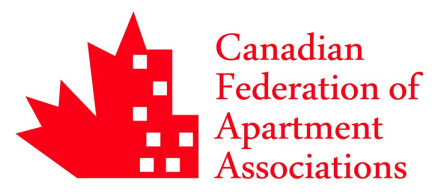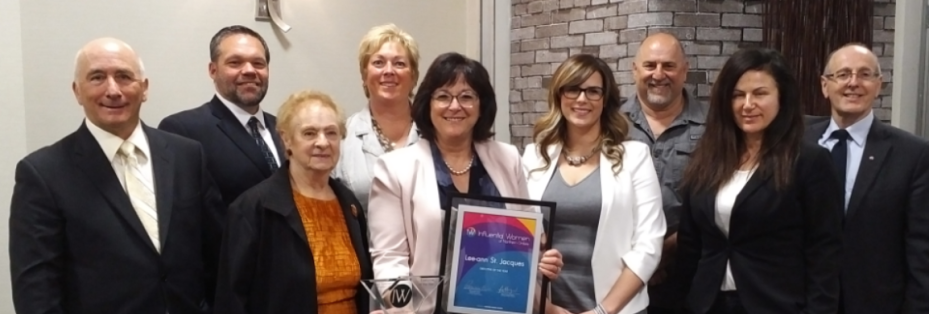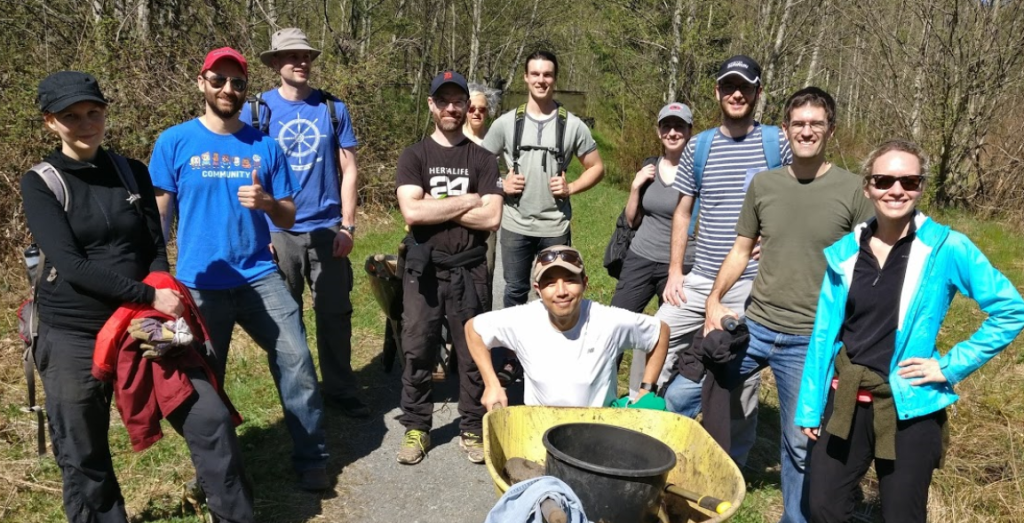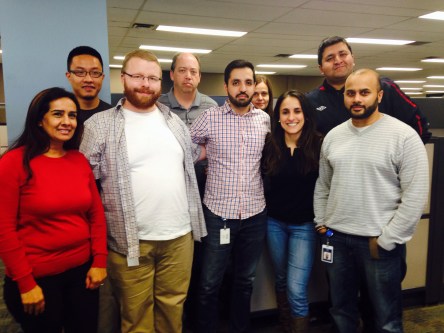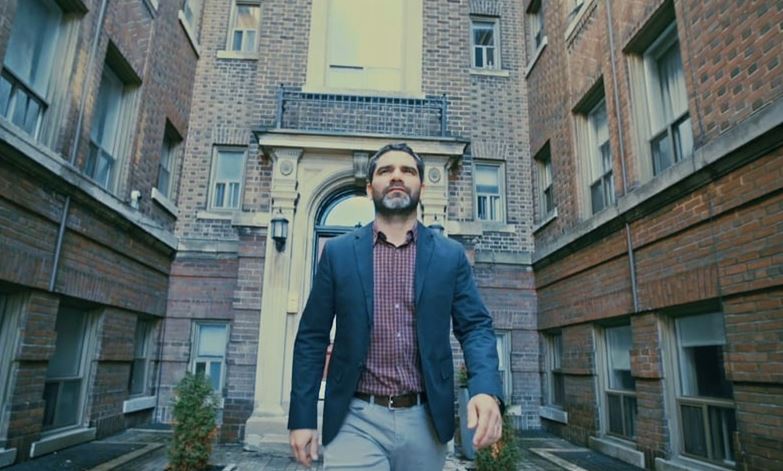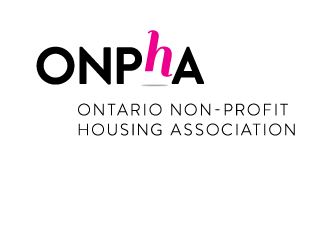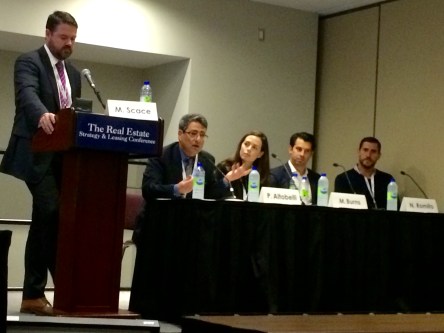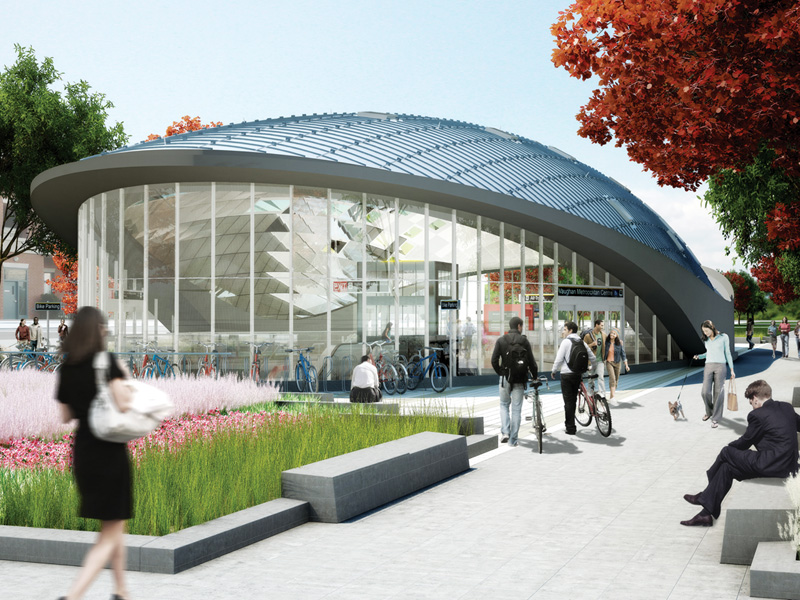The 2017 Canadian Multi-Res Tenant Survey conducted by Informa Canada showed that 85% of renters take less than two months to find their rentals. Your marketing website and ILS listings through RentCafe are designed to help get their attention during that crucial time. But for a truly effective marketing approach that makes the maximum impact during those two months (and beyond), there are a couple more tools you can add to your toolkit. RENTCafé CRM and RentCafe Connect are two solutions that integrate with RentCafe and Yardi Voyager to better manage prospect, applicant and resident workflows. RentCafe CRM simplifies leasing and resident services by putting everything leasing staff needs in one mobile interface, making it easier to follow up with leads and provide expert service from anywhere. RentCafe Connect is a budget-friendly contact center solution that supports your team with automated call answering and on-demand live support – so prospects and residents get the service they need 24/7. Using these tools in conjunction with RentCafe helps property managers improve onsite efficiency while managing the prospect to resident lifecycle, as well as improve spend and retention. Take a closer look at the four benefits of integrating your marketing strategy using the tools in the Yardi Marketing Suite. Simplify Operations Connecting these three solutions automates the entire leasing process, increasing visibility for you and your staff. When online leads and applications come through RentCafe, your prospects’ data instantly appears in RENTCafé CRM – no duplicate manual entry required. Follow-ups are automatically scheduled based on your custom criteria, giving your staff a clear picture of what needs to happen next to convert each lead into a lease. There are follow-ups for residents too that help automate the move-in, move-out and lease renewal process, making this a true...
Tech Transforms
At Canada's Greenwin
“Information technology is the core of your business and every business,” states Brian Turpin, vice president of information technology for Greenwin, one of Canada’s largest privately owned residential property management companies. Headquartered in Toronto, Greenwin has a combined staff of over 500 employees. The company professionally owns and/or manages more than 1,000,000 square feet of commercial space and 15,000 residential units throughout central Canada. Greenwin is currently using integrated software solutions for accounting, construction management, budgeting and forecasting, procurement, inventory control, and maintenance management — operating on a single platform. Turpin’s role over the past four and a half years has been to work with Yardi, Greenwin’s software vendor, to meet the company’s evolving needs as it seeks to do more digitally. Part of this rewarding relationship includes beta testing Yardi’s latest innovative products. Currently, Greenwin is testing VENDORCafé, the one-stop-shop for vendor management. Changing the Way People Work Turpin describes the way he looks at new technology as “digital transformation” and is always asking himself and his team, “what challenge does this product solve for us?” Usually, the answer to that question includes the ability to untether Greenwin’s staff with the option to use mobile devices and leave their laptops behind. Turpin further elaborated on this line of questioning, “How can we do what we’re doing every day better, and where can technology take us? Are we at risk for falling behind, and do we need to automate more manual tasks and digitize our paper-based resources to create greater efficiencies?” For help with answering these questions and more, Turpin reaches out to Yardi. “Why not be the first to ask for something that maybe no one else is asking for yet? Yardi will endeavor to make it happen — and that close collaboration...
Renters Speak Out
Canadian Tenant Survey
If you’re currently a renter or have ever been one, you’ve probably wondered whether or not your landlord considers your needs for a happier home. A recent survey of thousands of Canadian renters sent a clear message to property managers everywhere: from soundproof walls to high speed internet and online services, renters are expecting more from their apartment living experience. And perhaps not surprisingly, technology tops the list. Sponsored by Yardi, results of this year’s Tenants Preference Survey, the only survey of its kind for the Canadian market, were presented at the Canadian Apartment Investment Conference (CAIC) on September 6, 2017. The CAIC brings together property owners, managers, investors and developers to provide valuable insights into the residential real estate market including how to increase net values. This year, attendees were eager to hear about what renters really want and how to keep them happy. Birth of the Project According to Sarah Segal, director at Informa, the survey was inspired five years ago by a real estate roundtable discussion that raised questions about what renters wanted. Informa delivers over 150 trade and consumer exhibitions annually across the globe including the Canadian Apartment Investment Conference, and engages industry leaders to understand key trends and concerns impacting property owners and managers. With more digital tools to empower its research in 2016, Informa partnered with Rentlogic and worked with founder Yale Fox and Amy Erixon from Avison Young to conduct a small survey of 2,000 renters. Segal said the survey produced some interesting findings, but Informa wanted wider distribution and more targeted questions for the next survey. To accomplish that, the company sought industry support including sponsors and the participation of property managers. Segal commented, “Yardi was immediately onboard with helping us produce an in-depth renter survey and...
Short-Term Rentals
Toronto Tries to Regulate
The City of Toronto has proposed new regulations for the short-term rental market. The proposed changes will affect owners of short-term rentals, rental agencies such as Airbnb, as well as hospitality and multifamily specialists. The City of Toronto is the first Canadian city to draft policy for this sector of the hospitality industry. Hosts and renters alike have known that regulations for the short-term rental market were inevitable. According to an Ipsos Public Affairs survey, 74 percent of Toronto residents believe short-term rentals should be permitted with some regulations. The Need for Change Several factors contribute to the need for new legislation regarding short-term rentals. Four issues top The City of Toronto’s list of motivating factors. Housing Shortage Population growth has outpaced the construction of new homes in Toronto, resulting in a housing shortage and affordability crisis. CMHC Rental Market for 2015 reports that a healthy vacancy rate is about 3 percent. Toronto’s vacancy rate is 1.6 . The lack of supply directly affects affordability. The Brooke Amendment to the 1968 Housing and Urban Development Act established a standard that is honored throughout much of North America. The Amendment stipulates that allotting more than 30 percent of household income towards housing is a measure of housing unaffordability. The City of Toronto cites the following CMHC data: 28 percent of owners spend a third or more of their income on housing, while 44 percent of renters spend 30 percent or more. The City of Toronto is exploring the connection between the short-term rental housing and the shortage of available housing stock. Hospitality Plateau EX26.3, a document that details the proposed regulations for short-term rentals, provides an overview of the proposed changes. It states, “Growth in the short-term rental market may be one of the factors...
Brittney Dolinger
A Yardi Journey
A Texan who now makes her home in Toronto, Brittney Dolinger has an exceptional outlook on life – and a great perspective on her Yardi journey. Currently working as a team lead supporting Yardi’s Genesis2 clients, Dolinger started with Yardi more than seven years ago, when the company had an office in Dallas. “I was just in one year remission from cervical cancer,” said Dolinger, who learned about Yardi from her sister, Laci Ortiz, a 10-year Yardi employee. “My sister told me about a new vision Yardi had and was looking for exceptional customer service oriented people to help build their new call center.” After diving into her new job, she began learning the ropes of a new industry and was part of the team who helped build the Yardi Call Center in Irving, Texas. “When we moved from the Dallas office to the Irving office, I took the opportunity to step up my game. We started to have more and more clients and that comes with more responsibility. We were making a name for ourselves and working on delivering top quality customer service to the industry,” she recalled. The call center team, known among Yardi’s global offices for its camaraderie and rapport, quickly expanded and became a valued part of the Yardi Marketing Suite, where multifamily clients use RentCafe Connect to meet their after-hours customer service needs. While use of the product grew, so did the families of many of the call center employees, including Dolinger’s. “Nine of us were pregnant at the same time in the call center. We like to call them our Yardi babies,” she laughed. Her son Finn is now three and a half. After he was born, she went back to college to finish her bachelor’s degree, which...
Team Yardi Toronto
Assists at Scott Mission
Team Yardi Toronto recently spent time at The Scott Mission in Toronto, giving back by preparing food for those in need. The Scott Mission has been serving homeless and impoverished Toronto residents since 1941, and has played a major role in helping thousands of people return to safety and stability after living on the street. In addition to meal services, the mission provides nightly shelter for up to 50 homeless men, groceries and clothing for the impoverished, summer camps and childcare, and worship services. The mission’s 100 staff members are joined by 2,500 Toronto community members each year to make these good works possible. On June 20, that included a group of employees from Yardi Canada. “This was a team building experience as well as a very humbling way to give back to the community,” said Lee Anne Lippa, an application solutions consultant from the Toronto office. “It left us with added appreciation for our surroundings of health, family, friends, colleagues, our place to work, home to live in and the food on our table.” The Yardi team, led by senior account executive Shirleen Vieira, participated in food and dessert preparation, setting tables for two lunch servings, and a final clean up. “They serve balanced meals,” Lippa noted. “We had chicken wings, baked potato, hard-boiled egg and salad. Others that were vegetarian with baked potato, salad, hard-boiled egg, salad and grilled eggplant and zucchini.” They served lunch to the shelter guests – which included people of all ages – with courtesy and respect for those coming to eat, which is a focus of the organization’s Christian values. Drawing from the Yardi corporate values, which include giving back to the community, the Toronto offices encourages other Yardi colleagues globally to give back in similar fashion....
CFAA Highlights
Industry on the Move
Yardi Canada’s Peter Altobelli and Sam Jaishankar had the honor of speaking about key technology innovations impacting the real estate industry at the Canadian Federation of Apartment Associations (CFAA) Rental Housing Conference, June 6-9 in Toronto. The conference brings together leaders from the rental housing industry from across the country to discuss topics such as building and development, marketing, leasing, staffing and technology. Yardi participated in three sessions this year. Yardi is proud to sponsor industry events including the CFAA conference and participates in a variety of educational opportunities that help move the real estate industry forward. Property and Operations Management Apps Improving rental operations and solving problems using technology were the focus of this session. Pain points included processing payments, tracking maintenance, completing inspections and managing vendors. Panelists included Peter Altobelli, Vice President and General Manager, Yardi Canada; David Janowski, CEO, Pay Quad; Leonard Drimmer, CEO, Property Vista; and Andy Larson, VP of Business Development, HappyCo. Altobelli spoke about using mobile apps for more efficient property operations and how these tools help companies advance and take their services to the next level. Not only are mobile apps key to optimizing real estate business processes, but they are also critical to engage the next generation of employees who expect tech-forward workplaces. “We are starting to see a transition here in Canada with deploying new technologies to operations staff — be it maintenance or leasing or financial accounting. Consumers demand a quick turnaround in everything they do. They want to go online or use their mobile device to make a request or complete a transaction at their convenience, they expect quick responses and they want instant confirmation when things are done. For real estate, these customer demands require operational changes,” Altobelli said. Automating the Marketing Process...
Yardi Canada
Empire Club Panel
Yardi recently sponsored and participated in an event hosted by the Empire Club of Canada. The panel talk, titled “The Evolution of the Real Estate Industry — Diversity, Culture and the Workplace,” focused on the commercial market. Established in 1903, the Empire Club of Canada is an influential forum for leaders in various industries and cultural organizations. Every generation, but especially Baby Boomers and millennials, has a major impact on various sectors of real estate. The Empire Club panel broadened the discussion to include gender and racial diversity. The hope was to motivate industry leaders to increase the presence and influence of women and minorities in the Canadian real estate industry. The panel included Scott Addison, President, Brokerage Services Canada, Colliers International; Toni Rossi, President, Real Estate Division, Infrastructure Ontario; and Michael Brooks, CEO, Real Property Association of Canada. Serving as moderator was Sheila Botting, National Real Estate Leader in Canada and a partner at Deloitte. Driving Change Botting compared a thriving work culture to an ecosystem. No ecosystem can be homogeneous — diversity is crucial for ongoing growth and survival. “Diversity drives productivity, profitability and better outcomes for everyone involved,” Botting said. Addison commented that the first thing that needs to happen to drive change is awareness. He has personally observed a lack of gender diversity in the brokerage arena. To address this issue, Colliers set up campus recruiting and other hiring programs led by women to help balance the gender gap. Rossi, representing Infrastructure Ontario, said the organization is fortunate to have a 50/50 gender balance in its leadership. That has been established thanks to direction by the federal government, especially during the Trudeau administration. Rossi outlined three key things she believes can prompt change: Leadership: set a target (not a quota) for...
Lee-Ann St. Jacques
Leadership in Northern Ontario
In the northern half of Ontario, Canada, daily life maintains a bridge to an earlier time. Economic drivers include gold mining, and until recently, a paper mill. Winters are long and sometimes unusually frigid. One local politician says the area, an eight hour drive from Toronto, is “truly one of the last frontiers left in the country.” But despite those links to the past, the region has modern problems. Poverty, addiction, domestic violence and elder care are issues here on the last frontier just like anywhere else. Thankfully, there are leaders like Lee-Ann St. Jacques to help address them. St. Jacques was recently honored as the Influential Women of Northern Ontario’s Executive of the Year. A passionate advocate for supportive housing services, she serves as Area Manager of the Cochrane District Social Services Administration (a Yardi client), which delivers social services to a far-flung region encompassing 145,618 square kilometers – and around 83,000 residents. “Housing is a critical part of our region’s future and yet it remains one of the most underfunded elements. Lee-Ann has not let that deter her from leading one of the most significant housing outcomes of our generation,” wrote Peter Politis, Mayor of Cochrane, one of the larger towns in the district. Politis and other area officials expressed profuse support for St. Jacques’ nomination for the executive honor. “One primary passion for Lee-Ann is that of ensuring adequate and affordable housing for the growing needs of seniors living in our community,” wrote Michael Shea, Mayor of Iroquois Falls, the town where St. Jacques lives and works. In addition to her day job, she has also served as the director of the Iroquois Falls Chamber of Commerce and worked toward establishing a community senior center and garden. “For me it is all about the people I serve. It is seeing the impact on their lives, that is my motivation. Everyone needs a safe place to call home; to live in dignity and to achieve a healthy quality of life,” St. Jacques said. She fell into public housing somewhat accidentally as a career path, but has now been with the CDSSAB for 28 years. In that time, St. Jacques has worked on numerous development projects to augment the area’s housing stock and consolidate local delivery of social services. Housing for victims of domestic violence and two-bedroom affordable and accessible units for seniors have been among the projects. The most recent work involved a public-private partnership to construct 32 units of supportive housing for seniors. With the final closure of the Resolute Paper Mill in Iroquois Falls in 2015, a significant portion of the town’s population relocated to find other jobs. The ripple effect impacted many. NE Ontario Communities are struggling with youth out-migrating to secure employment and seniors leaving to reside in supportive and assisted living facilities. “We are ahead of the curve when it comes to senior supportive and affordable housing, but we are not at the crest of Baby Boomers yet. This is a pilot project for us as we know based on our demographics and community consultations there is going to be an increasing demand over the next 10-20 years,” she said. Mayor Politis noted: “Our mothers and fathers, who have built their homes and lives here, can now remain in their roots, with dignity and family nearby. I can’t think of a better gift from one person to many others.” Within her organization, St. Jacques has impacted future-focused change, including the implementation of the Yardi Voyager platform. With such a far flung region to oversee, she noted that Yardi’s cloud based technology has been a huge help to the CDSSA. “Because of the size of our district, to be able to go to another community and have access to the database, or to be able to work from home, that’s fantastic,” she said. While St. Jacques is recognized regionally for her work, she...
Canada in Focus
Retaining condo corporations
If you are a condominium property manager, every day you work towards maintaining your properties to make them desirable places to live, while keeping operations running smoothly. Further, you must ensure the properties meet the expectations of owners and condo corporations. In competitive markets such as Toronto and Vancouver, this is especially key. According to the experts, the lack of single-family residential unit supply in the current Canadian market is expected to create opportunities for condo markets to absorb excess demand. Condo demand is forecast to increase in Toronto and Vancouver, due to factors including urban migration and the interest of foreign real estate investors. In addition, rising house prices, which have reached 4.6 times the national average household income, further powers the condo market. Given the high demand and potential growth in this industry, it is crucial to stand out as a property manager. Following are some tips to help you attract and retain condo corporations and at the same time reduce your overhead costs and streamline your operations. Enhance Your Digital Presence It all starts with branding. In today’s world, it is imperative to have a digital presence in order to establish credibility of your business and to attract prospective customers. When it comes to your property management brand, curb appeal matters. Critical first impressions often happen online. Creating a beautiful property website with rich, easy-to-use features including an owner portal will further heighten your brand value and make you a more valued property management service provider. Creating a Community Due to the growth in demand in the condo property market, creating, promoting and maintaining a strong sense of community is crucial to stand out as a property manager. Of course, property appeal goes beyond landscaping and renovations. Today’s owners are looking...
Working for the Earth
Yardi Vancouver
One of our newest offices, located in Vancouver, British Columbia, has an innovative Earth Day tradition. Formerly Pulse Energy, Yardi Vancouver is a founding member of EarthWork Day (EWD), an annual collaboration with three other environmentally-minded companies. “Held on or close to Earth Day every year, staff from each company dedicate their time on EWD to local environmental projects,” explained Colin Chan, a CSD manager for the Yardi Smart Energy Suite. This year, two projects were taken on the day before Earth Day, Friday, April 21. Each team member receives a small budget of $22 to put toward supplies, and the projects selected are always environmentally conscious. Teams are mixed between the participating companies, so everyone gets to meet and work with someone new. At the end of the day, it’s time for a get together to share snacks, notes and beer. This year’s projects were: Maplewood Flats Habitat Restoration “This is the third year we have participated in this project, restoring habitat for the Anise Swallowtail Butterfly that has gone extinct from the North Vancouver area from urban development,” Chan explained. “We’ve been removing invasive plant species and planting native species in the hopes that we can eventually import caterpillars from other areas where the butterfly still exists and re-introducing it to the area.” The effort at the habitat aids the Wild Bird Trust of British Columbia. “It’s been personally rewarding to see the progress we’ve made from year-to-year. The Wild Bird Trust is a small non-profit with limited funding and resources, so it’s a great feeling to help contribute to the success of their habitat restoration project,” said Jennifer Sinclair, office administrator for Yardi Vancouver. “It has also been a fun annual team-building event for our office!” Garden Planter Construction A Vancouver public low income housing complex needed garden planters to help residents improve food security by growing their own produce. “In one day, the team built 15 planter beds, including some that were accessible to residents who use wheelchairs,” Chan said. Tyler Fawcett, creative director in the programming department, participated in the effort. “We joined forces with BC Housing to construct planter boxes behind two of their residential buildings. 15 new boxes were constructed and filled with soil, to be used as flower and vegetable gardens by the building residents. “Before the boxes were even half-done, many enthusiastic residents had come out to claim their plots in the new garden,” Fawcett shared. Photos from the day appear in the gallery...
Resident Screening in Canada
3 Ways to Win
Screening prospective residents is a crucial step in creating a safe and secure community and minimizing risk to your business. Background checks and credit reports help you reduce loss from collections, evictions and legal action. No matter which decision criteria you use to screen your residents, there’s a way you could save even more time while keeping your properties and profits secure. Using a resident screening solution that integrates with your property management platform allows you to make better rental decisions more quickly. In addition to being the smart choice in today’s fast-paced rental industry, integrated screening provides you with comprehensive reporting and analytics that let you know if your properties are on the right track. Save Time & Reduce Errors Increase efficiency with just one system and one login that lets you get more done during the leasing process. Integrated screening software automatically populates information from the online leasing portal to the screening application, removing the need to enter applicant information on multiple forms and the risk of delays caused by inaccurate data. Did you know that decision criteria can be tailored for each of your properties to customize the screening of every applicant? Get accurate results and automated rental recommendations based on your pre-determined decision criteria. Approve only the renters that are right for you, instead of the ones who are just generically okay. Gain Insight to Improve Processes An integrated resident screening system compares your screening process with the overall financial performance of your portfolio. You may have a number of properties in the same market in a certain neighborhood – in some cases, directly across the street from each other – but with very different demographics. Integrated screening helps you drill into where the applicants are coming from at each of your properties. And it helps you select the highest quality residents for all of your properties. Software collects the marketing source of each applicant that goes through the screening process. It then analyzes those sources to see which produced the highest and lowest quality residents. This insight lets you evaluate your marketing initiatives and determine if your screening process has any effect on your overall revenue. Integrated screening software also gives you the ability to conduct what-if scenarios that take market conditions and vacancy rate changes into consideration. This helps you adjust your scoring system to get the desired number of approvals. Appeal to the Modern Renter According to Informa Canada’s Canadian Multi-Res Tenant Rental Survey, the features residents desire most are high-speed internet and online portals, indicating that they want landlords to be more tech savvy. Property managers should be thinking about increasing automation to engage with their prospective renters, and one way to do that is with a smoother transition from applicant to resident. Integrated screening caters to Millennials and other members of your target market by making sure their application experience is as effective as possible. When you offer one easy online application – without extra steps and paper waste – your property management business stands out from the crowd. Faster, Smarter & More Competitive In summary, integrated resident screening is a smart choice for your business because it speeds up leasing and gives you a detailed look into your screening process. You can use comprehensive reporting and scenario analysis to compare it with your property’s financial performance. This allows you to choose the best renters and quickly move on with your day. Being able to get more done with confidence? That’s a big win for any property manager! Learn more about resident screening tools for any size...
The Pulse of Energy
Yardi Energy
With the ability to collect, analyze and communicate real-time energy information, Pulse Energy adds the power of data to Yardi Energy arsenal. The Power of Data Over the last few years, Jeff Rambharack and the Pulse Energy team have worked to collect data on over a million businesses throughout the US and Canada. That data drives the company’s overall approach and helps provide Pulse clients with strategies tailored to their unique challenges. The company works with utilities and individual businesses, focusing on solutions specifically for different industry segments. “We provide personalized messaging for individual businesses,” explains Rambharack. “We support over 130 different verticals for businesses segments, and we provide personal messaging within each segment. We recognize that every business is different, and we work to identify sources of energy consumption and provide targeted recommendations layered on top of our in-depth analytics we’ve developed to analyze each business’s energy consumption.” Rambharack believes the biggest benefit of this data aggregation is that it allows an energy usage analysis at every level of a company’s organization. By being able to provide personalized insights about of those levels of aggregation, Pulse clients can pursue more effective energy management policies and procedures to reduce energy waste and improve energy efficiency. “Just being able to provide insights and say ‘Hey, you should go look at building X, because we think it has some efficiency problems,’ is so valuable to our clients,” says Rambharack. “Maybe we discover that they are leaving their systems on at night or running their AC and heating simultaneously. Our analytics and extensive database help us detect these sorts of oversights and provide valuable energy consumption insight to our customers.” Tracking Usage against the Baseline One of the most valuable tools for energy management involves developing an accurate...
Teamwork Pays Off
Canada Payment Processing
It’s true that hard work pays off, and as the Yardi Canada team based in Toronto has discovered, that hard work can also be rewarding in unexpected ways. In summer 2016 Yardi introduced a collaboration with payment processing solutions provider BluePay to enable electronic rent payments in Canada that make the lives of property managers easier (and funds flow faster), and soon MasterCard credit card payments will be another convenient option. Peter Altobelli, vice president of sales and general manager for Yardi Canada, commented, “This collaboration joins Yardi’s property management solutions with BluePay’s experience in processing billions of dollars of transactions annually for thousands of organizations. Working together represents a giant step toward making electronic payments the secure, efficient rent payment method of choice in Canada.” And while serving their customers better than ever, Yardi Canada has enjoyed collaborating with their U.S.-based Yardi Payment Processing team members. Working together to create not only a superior product offering but also a stronger team has been a truly positive experience. That’s the experience that Rosa Mota, a technical account manager on the Payment Processing implementation team, has happily shared. Rosa elaborated, “I’ve been assigned to help the cash management team in Canada get up to speed on the exciting developments with Payment Processing. Our electronic payments collaboration with BluePay eliminates the lengthy process our clients used to endure to receive their monthly rent payments. Now they get their funds within hours. I spent two weeks in the Toronto office working to build implementation documentation, and showing product demos.” Rosa also completed a client implementation while in Toronto, which afforded a valuable hands-on experience for the account manager. Culture of Camaraderie Yardi Canada includes three locations in Toronto, Saskatoon and Vancouver, each with different areas of product...
Timbercreek Communities
Canada Client Video
When David Melo, president of Timbercreek Communities, joined the company, his first call was to Yardi. Melo knew that the company needed a stronger, savvier technology provider to manage its complex accounting needs, and also enable the company to add vital solutions for ancillary services. Yardi Voyager delivered the tools that Timbercreek needed to succeed. Watch the video: Beyond superior accounting and reporting capabilities, moving from manual to automated processes within Voyager has provided Timbercreek with cost control and greater end-to-end operational efficiency. As an early adopter of Yardi PAYscan in Canada, Timbercreek has quickly realized the benefits of automating accounts payable. “Moving from a manual process to one that is automated with a workflow not only increases accuracy and processing speed, but also improves cost control,” said Melo. He added that the PAYscan mobile app is a great tool for staff who travel frequently, as it allows them to approve invoices from airports or anywhere else they happen to be. Timbercreek is also rolling out RentCafe resident portal and Yardi Maintenance, including the mobile app, across its portfolio. They expect significant time savings and improved responsiveness thanks to seamless Voyager integration. Melo commented, “We were manually receiving emails from our website for maintenance requests, which required someone attending to the email inbox and forwarding the messages to the right people. Now residents can simply log in to the resident portal, enter their service request and start the workflow.” Consolidating operations portfolio-wide on the Voyager platform has also improved communication within the company. As part of its inherently collaborative culture, Timbercreek has found great success with appointing “Yardi Champions” across its business. Melo commented, “We’ve empowered a small group of Timbercreek employees to be Yardi Champions. These individuals lead the charge and take ownership of each solution piece of our Voyager platform. This is an exciting new approach, and we’re already seeing great results from our 400 onsite employees. Yardi has absolutely helped empower our...
Change is Good
ONPHA Event Recap
The Ontario Non-Profit Housing Association (ONPHA) held a three-day conference and tradeshow in Toronto earlier this month, focused on the theme “Let’s Grow Together.” More than 1,100 housing professionals, government representatives, community partners and service managers attended. Yardi presented “A Real-World Look at Technology in Social Housing,” an informative look at innovation. The room was completely full as Peter Altobelli, Yardi vice president of sales and general manager of Canadian operations, moderated a discussion about how technology impacts non-profits, how everyday tasks can be automated and how non-profits can maximize their return on investment in technology. Panelists included Christine Brutin, chief executive officer for Haldimand-Norfolk Housing Corporation; Dana Farcasiu, supervisor of technical services for Renfrew County Housing Corporation; and Wendy Duncan, manager of finance and administration for Stoney Creek Community Homes. The session began with the topic of change management issues that arise with new technology adoption. Ms. Brutin noted how far their organization had come since computers first became commonplace in the work space in the early 90’s. “We had a large mainframe computer that nearly took up its own room!” Ms. Brutin recalled. Haldimand-Norfolk successfully dealt with numerous challenges as the organization began to rely more heavily on computers as well as software solutions such as Yardi Voyager for Canadian Social Housing, which Haldimand-Norfolk began using in 2000. Panelists discussed how automation has made their organizations more efficient, and helped them better serve their clients. Pain points such as missing case management documentation, disjointed information and lack of consistency in historic records were all cited as “defining moments” that led to the decision of technology adoption by the panelists. Ms. Farcasiu added that “with the access to information, increase in productivity and reduction on downtime, with Yardi, I have been able to...
Beyond Credit Checks
Patrick Hennessey, Yardi
Patrick Hennessey, Vice President and General Manager at Yardi, joined the team in 2010 as an expert in screening software. He found Yardi’s small company feel and large company resources appealing. “We have a great team of people, cutting edge technology, and the efficiencies that a company the size of Yardi are able to attain with support teams on both coasts and flexible hours for our clients,” says Hennessey. Hennessey leads the Yardi Resident Screening team in honing and refining online screening software for multifamily clients. The team introduced the product to Canadian markets earlier this year. Benefits of Yardi Resident Screening Hennessey’s focus, Yardi Resident Screening, helps leasing agents select and retain low-risk residents. The system facilitates: comprehensive reports reliable data automated recommendations insights into applicant traffic applicant and resident performance reporting improved efficiencies Hennessey explains, “We do a few key things to help our clients through Resident Screening. First, we help our clients make the best possible leasing decisions. We do that by helping them find more high quality applicants and fewer low quality applicants. Thus we help them maximize revenue by minimizing unwarranted financial risks.” He continues, “Additionally, we limit their legal exposure by using a neutral third party for their screening process. That ensure that the applicants’ rights are protected and that they are given a fair opportunity in the leasing process.” In addition to increased consistency in the selection process of their residents, property managers who adopt Yardi Resident Screening can expect cost savings as a result of improved efficiencies in the leasing office. Rather than requesting a credit report and scoring it by hand, users execute tasks online. Added Security The efficiency and convenience of online leasing has directly influenced the demand for resident screening tools. With Resident...
Bentall Kennedy
ROI on Sustainable Assets
Yardi client Bentall Kennedy recently released a report that may change the way that the industry sees sustainable building. Giselle Gagnon, Senior Vice President, Strategic Resources Group explains, “Our team at Bentall Kennedy has long been committed to implementing sustainability practices across our managed property portfolio – for us it demonstrates to our clients and tenants that we are investing soundly and sustainably,” she says. “So we commissioned a study to seek research-based evidence to test our hypothesis that green office building certifications deliver higher value.” Sustainability within the commercial sector is a vital component of environmental health and corporate efficiency. Commercial properties are responsible for 81 percent of electricity consumption across North American and Europe. The industry also accounts for 40 percent of all energy consumed in those continents. Until now, stakeholders did not have the resources needed to determine which green building certification would be the most effective, yielding the highest returns and making the smallest impact on the environment. Previous studies fell short in a number of ways: All were based on publicly available information, such as posted asking rents, green building certifications and the sale price of assets. The majority excluded data on concessions and their effect on net rents. Many studies overlooked intangible benefits entirely. None examined actual in-depth, diverse metrics across a large office portfolio for as long as 10 years. As a recognized leader in Responsible Property Investing, Bentall Kennedy filled those voids. The company commissioned a comprehensive, long-term study on the benefits of sustainable certifications for commercial properties. In late 2015, The Journal of Portfolio Management published a report of the study entitled, “Green Certification and Building Performance: Implications for Tangibles and Intangibles.” “The study is unique in that, in addition to financial metrics, it looks...
Big Data Benefits
Canada Update
At this year’s Real Estate Strategy and Leasing Conference that took place on October 6th in Toronto, Peter Altobelli, vice president and general manager for Yardi Canada, joined a panel of experts for a session titled “New Technologies Across the Spectrum That Can Help Drive Your Business Forward and Provide Competition to the Landscape.” Altobelli and his co-panelists shared insights on new products coming to market and how breakthrough technologies are changing the industry and revolutionizing asset management. Also discussed were trends and opportunities for Canadian businesses to take into serious consideration. The session was moderated by Michael Scace, partner at Ashlan Urban Realty, and joining Altobelli on the panel were Maggie Burns, vice president of real estate at Breather, Nick Romito, CEO and founder at VTS, and Brandon Weber, CEO and founder at Hightower. On the topic of current technology innovation, Altobelli elaborated that in the last 10-15 years we have seen the launch of the smartphone and tablets, and with increasing reliance on those platforms, many businesses have responded to shifts in consumer demand and are adopting these impactful technologies to keep pace. Consumer demand is without a doubt driving innovation at the corporate level, and Canadian companies need to take note of this demand and make sure they are responding to their customers with the right tools and services. However, Canadian businesses are known to be resistant to taking risks and are unlikely to be early adopters of any new technology, no matter how promising. But with an increase of American companies investing in and merging with Canadian companies, the business culture is changing. In the meantime, Altobelli sees the need for thought leaders to educate the industry, so Canadian companies can perform better and thrive by taking advantage of the...
Instant Housing Crisis
Helping Fort McMurray Fire Evacuees
On May 1, 2016, a fast-moving wildfire began near Fort McMurray in northeast Alberta, Canada. The fire forced the largest evacuation in Alberta’s history and destroyed more than 2,000 homes, while 90,000 people fled the flames. Evacuees headed south in a scene reminiscent of an apocalypse movie. They made it away safely, but waiting at the end of the road was an instant housing crisis. “Residents won’t be able to return home until it is safe to do so,” Alberta Premiere Rachel Notley informed thousands of anxious evacuees. “Residents of Fort McMurray should not expect to return home for an extended period of time.” There were apartments to rent, but a way to share information about them was missing. The Provincial Government of Alberta, including the municipal government of Edmonton, scrambled to connect fire evacuees with a searchable, trustworthy, easy-to-use housing registry. It needed to be ready fast to connect an estimated 4,500 evacuees seeking housing with new homes and apartments. Reaching out The Capital Region Housing Corporation, a social housing provider in the city of Edmonton, reached out to its real estate technology provider, Yardi Canada Ltd., part of global software firm Yardi Systems. Based in Santa Barbara, Calif., Yardi is an industry leader and well-known provider of software for real estate companies around the world. Greg Dewling, CEO of Capital Region Housing, contacted Peter Altobelli, Vice President and General Manager of Yardi’s Canadian subsidiary. Altobelli quickly reached out to Yardi founder and CEO Anant Yardi, who said that his company would provide development services without commercial terms. Yardi’s RentCafe apartment search platform was ideally suited to address the crisis, and its development team was ready to leap into action. Dewling made his first call to Yardi late in the afternoon of Monday, May 9. By the early afternoon of Thursday, May 12, he viewed a nearly final product. Development of the housing registry website was complete in just 72 hours. “This was an excellent test of how quickly we can mobilize the RENTCafé platform,” said Chris Ulep, Vice President of multifamily product development at Yardi. “It truly demonstrated the capability of design, development and client services to work together and ensure that product update and production plan was delivered quickly.” “We were floored that they were able to turn it around so quickly,” Dewling said. “I shared this with colleagues at a real estate forum, and jaws were dropping about the speed of the initiative and what Yardi was doing to help. We were, to say the least, extremely impressed.” Behind the scenes The accomplishment of that 72-hour site launch was a global effort by Yardi executives, managers, programmers, designers and marketers. Staff members from Toronto, Canada; Santa Barbara, Calif.; Pune, India; and Cluj-Napoca, Romania were all part of the sprint to prepare the site. With teams in four different time zones, the project was on a 24-hour clock. Web designers in Santa Barbara created a site design and handed off to programmers in Cluj, who built the site. With the infrastructure in place, the project came back to Pune and Toronto for Quality Assurance and user testing. Monitoring of site performance was conducted in Toronto, Cluj, and Pune. As development neared completion, marketers in Cluj learned of the project and pitched in to publicize it via social media. To start the content process, Yardi clients in Canada were asked to list their vacant Alberta units, and many did so. “Everybody was incredibly dedicated to working quickly to get this done,” said Altobelli. “Employees around the world worked overtime. There was amazing communication.” The housing registry went live for all landlords to use on Friday, May 13. Vacant apartment listings began pouring in via webform and needed to be prepared for display. “Everyone came together to participate in this initiative,” said Stephen Teague, a client services manager in Toronto. “The RentCafe team in Canada and India worked...
Clarity in the Cloud
Wilson Blanchard Management Inc.
Moving to Yardi’s cloud-based Voyager 7S platform was a big leap for Wilson Blanchard Management Inc., a Canadian condominium overseer. With responsibility for nearly 37,000 units in the Toronto and Golden Horseshoe area and offices in Toronto, Hamilton and Cambridge, the company is one of the largest and most respected condominium management firms in Canada. The company’s transition to the 7S platform was a big deal because not only were they moving away from a self-hosted software solution, but they jumped from a much earlier version of Voyager, Voyager 5, to the vastly improved and more intuitive 7S. “That was a big challenge, both from our standpoint and I think from Yardi’s standpoint also,” said Jeff Lack, manager of financial reporting for Wilson Blanchard. But moving to the cloud turned out to be one of the best technology decisions that Wilson Blanchard had ever made since the company began 20 years ago. Not only did it produce nearly immediate cost savings, but it saved time, enhanced productivity, and generated peace of mind. “The cost of being self-hosted, both the cost from a hardware standpoint and a maintenance standpoint, just wasn’t worth it anymore. It didn’t make sense to continue putting out that amount of money for servers, maintenance, software upgrades, and server upgrades,” Lack said. Transferring the responsibility for those items to Yardi created a streamlined system for troubleshooting and eliminated miscommunication between software provider, client and a third party IT provider. But there haven’t been many issues to troubleshoot, Lack relayed. “We really haven’t had any cloud specific issues, at all. There has been no downtime, no data issues,” Lack said. Among the efficiencies generated by Voyager 7S that Wilson Blanchard has appreciated are fast report generation using SSRS reporting. “It’s almost instant....
Vaughan Metropolitan Centre
Transit Centered Design
Building along public transit lines has long been a popular way to ensure that traffic flows easily to a retail property. A lack of transit options does not have to deter an otherwise promising development. At Vaughan Metropolitan Centre in Canada, Yardi client Calloway REIT demonstrates how to build smart, minimize sprawl, and convince transit authorities to collaborate when funds are scarce. Calloway has built its reputation on creating strategically located shopping centers of exceptional quality. When considering the next project, team leaders took a few factors into consideration: Canada hasn’t seen the construction of an enclosed shopping mall in over 20 years. The City of Vaughan is growing but lacks an adequate downtown to meet the expectations of businesses and residents. The market was ready for something big, new and exciting—without the downside of urban sprawl and traffic congestion. Calloway, in a 50/50 joint venture with SmartCentres, stepped forward to address those factors with a project in the burgeoning Vaughan Metropolitan Centre (VMC), a pedestrian-friendly hub for businesses, residences, and entertainment. Calloway’s carefully selected locations can be easily accessed by more than 85 percent of Canadians. Keeping with this tradition, the company selected a 50 acre portion of a 442-acre parcel in Vaughan, part of York Region northwest of Toronto, as the project’s site. It was ideal for Vaughan’s new downtown and it had ample space for retail, office, and residential accommodations. There was only one major problem: transit lines stopped in Toronto nearly 25 miles away. A lack of transit access would adversely affect the ability to fund and market the project. Studies by Urban Land Institute state that 91 percent of public leaders regard transportation infrastructure quality as the top influencer of real estate investment and development decisions. 86 percent of private leaders rated transportation infrastructure as the second highest priority. The households of the future—Gen Y and Millennials—are steadily seeking out neighborhoods and employment centers that facilitate public transit use as an alternative to car ownership. Public transit tops many lists, and the vision of VMC couldn’t thrive without it. Though the importance of public transit is growing, the City needed an incentive to direct its limited funds to a transit station at VMC. APTA recorded $2,205.6 million regular users bringing in a total operating revenue of $3,762.7 for all of Canada. Those figures aren’t groundbreaking, but studies suggest that the profitability of public transit will only improve. If the City of Vaughan wanted to grow, it was in its best interest to support the vision of VMC. The three entities met halfway. Calloway and SmartCentres donated 2.5 acres of land to Toronto Transit Commission (TTC) for the new station. “People ask, ‘How did you strategically make this happen?’ As stupid as it sounds, we just waited for the phone to ring,” laughs Rudy Gobin, Executive Vice President of Asset Management at Calloway REIT and former Executive Vice President, Finance and Operations of SmartCentres. “We already owned the land. The City called and said they wanted to put a subway stop on the street edge of the property. It took us about six months to negotiate this but we said, ‘Why don’t you put it in the middle of the property and we’ll give you the land?’ They wanted 2.5 acres of land in the middle of 50 acres. They said sure and that was that. And of course, we then acquired additional land nearby.” Toronto York Spadina Subway Extension Project provided additional funding. The construction on Vaughan Centre Station at VMC was soon underway. Vaughn Centre Station will connect residents of York Region to Downtown Toronto. The new station will be the northernmost point along the TTC network, and only the second station operated by TTC outside of the City of Toronto. Mitchell Goldhar, President and Owner of SmartCentres says, “This joint venture with Calloway will leverage the strengths of both companies and will...
Toronto
North America’s Greenest City
Toronto shines as North America’s greenest city according to the Sustainable Cities Index, coming in at a respectable 12th place out of 50 cities. It is the only Canadian city to make the list. European and Asian cities continue to dominate the top rankings each year but Toronto is poised for greater gains. The Arcadis Sustainable Cities Index analyzes 20 metrics in areas such as environmental impact, quality of life, and economic performance. Toronto placed 9th in environmental impact, 15th in quality of life and 18th in profits. A looming population boom may serve as the perfect motivation to improve the country’s environmental impact rating. Within the next 15 years, Toronto’s population is estimated to grow by 25 percent. Infrastructure is developing to meet the needs of the growing population: Ontario earmarked $130 billion over the next decade for new transit, roads, bridges, and similar projects. As part of this plan, GO bus and train lines are expanding services to James North, Stoney Creek, Hamilton, Georgetown South, Kitchener, Unionville and Agincourt. The Scarborough subway will bring additional services to the north by the end of summer 2016. Those improvements are only the first frontier. Premiere Wynne presented a challenge earlier this year for all levels of government to increase investment from 3-3.5 percent to 5 per cent of the nation’s $2 trillion gross domestic product (GDP). The bump in funding will be dedicated to infrastructure renewal each year. But even with adequate infrastructure to meet the needs of residents and visitors, one of the greatest challenges will be supplying the population with sustainable energy. The city currently has about 60 renewable energy installations. (That quantity is small scale compared to other cities of its size, though it’s better than other cities in North America.) The new hydro-powered Copeland Transformer...
Mackenzie Green
New Green Living in Ontario
Yardi client Housing York, Inc (HYI) is The Regional Municipality of York’s non-profit housing corporation and the seventh largest housing provider in Ontario. This year, HYI added Mackenzie Green to its portfolio of sustainable housing. Located in Richmond Hill, one of the fastest growing communities in Canada, Mackenzie Green has demonstrated a complete approach to human and environmental wellness. Sustainability Mackenzie Green awaits Canada Green Building Council LEED® Silver certification, meeting strict criteria for resource efficiency, sustainable material selection, and innovative design. The site’s energy efficiency begins from the core. Mackenzie Green’s insulated envelope facilitates 30 percent energy savings. To further increase cooling efficiency, designers chose white dolomite marble to cover most the roof. The stone’s reflective properties disperse the sun’s rays rather than absorbing them. Mackenzie Green’s windows also contribute to the envelope’s overall efficiency. Double-paned, low-e windows were filled with argon gas. The gas reflects outside heat and simultaneously stabilizes indoor temperatures. This composition helps units maintain comfortable living conditions while decreasing strain on interior heating and cooling systems. The well-sealed, insulated envelope does not entail that tenants are breathing stale, captured air. Efficient HVAC systems work in conjunction with heat recovery ventilator (HRV) systems into regulate the indoor air quality of each residence. HRV systems recycle room air in a manner that circulates it with air entering from the outside. HRV then cools or warms the air depending on the desired interior temperatures. The result is fresh air for tenants without compromising the building’s thermal integrity. Though Richmond Hill has access to Lake Ontario, fresh water isn’t taken for granted. Low flow fixtures and toilets reduce water waste by 45 percent. Randall Profitt, Manager Operations at Housing York Inc. South, says Housing York hasn’t stopped there in its effort to keep...







